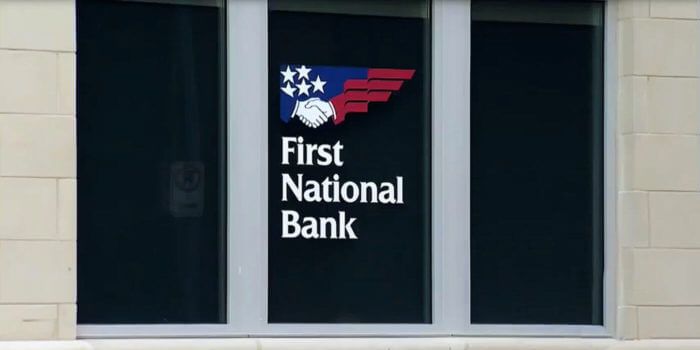(Headline USA) The same sub-prime lending practices that resulted in the 2008 “great recession” are making a comeback courtesy of the woke Justice Department.
With the inflationary Biden economy, Federal Reserve rate hikes and market shortages related to factors including the pandemic and illegal immigration, home-ownership has become increasingly prohibitive for lower-income Americans.
Yet, amid this sea of of red flags, leftist bureaucrats are bullying financial institutions into risky lending that may create the perfect storm for another economic meltdown driven by bank failures.
The DOJ alleged Monday that First National Bank of Pennsylvania discriminated against black and Latino homebuyers in North Carolina for a period of at least four years, according to a press release.
It is the latest in a long list of banks that have faced accusations of redlining, i.e. using a prospective borrower’s neighborhood or ZIP code as a factor in loan approvals. The term now applies more broadly to any discriminatory lending practices that allegedly target lower-income minorities.
The DOJ is demanding $13.5 million from FNB to settle the redlining charges, of which the bulk will go into a fund to help subsidize higher-risk loans for black and Latino borrowers in Charlotte and Winston–Salem, two housing markets where the DOJ has claimed discrimination.
In its complaint, the DOJ alleged that FNB closed branches in majority-minority neighborhoods, failed to provide mortgage services to black and Latino potential borrowers, and ignored entire neighborhoods for potential lending.
The DOJ claimed that lenders of similar size and scope to First National did two to four times as much lending to minority borrowers between 2017 and 2021—a period overlapping roughly with the presidency of Republican Donald Trump, who rolled back many of the prior regulations that were dragging down the U.S. economy.
The case comes from when FNB bought Yadkin Bank, a regional bank in the Carolinas, in 2017. While FNB said the same loan practices occurred at Yadkin before the acquisition, the DOJ said that any bank that buys another bank should be held accountable for the acquired bank’s actions.
“The playing field isn’t level, and that is not what we want for the people of North Carolina,” said Josh Stein, North Carolina’s Democratic attorney general, who is currently vying for the Democrat nomination for governor.
Stein, who is white, faces primary challenges from four black candidates. If nominated, he stands a good chance of running against the state’s lieutenant governor, Mark Robinson, an outspoken black conservative who is considered by many to be a rising GOP star.
While an assist from the federal government in establishing a slush fund for minority home-buyers may be a political boon to Stein, however, the chilling effect on actuaries and lenders at privately owned banks resembles, to some extent, the Obama-era Operation Choke Point.
Under then-Attorney General Eric Holder, the DOJ pressured banks into abiding by their political agenda on matters such as gun rights and climate change by threatening to investigate or otherwise punish them for noncompliance. A similar strategy has since undergirded the controversial ESG movement, in which woke investors threaten to withdraw their funds in companies that reject their radical values.
The FNB case marks the 13th redlining settlement that the Biden administration has brought against banks since 2021. Under current Attorney General Merrick Garland, the DOJ has created a Redlining Taskforce that has accused banks of racial discrimination in an unprecedented and financially lucrative way.
It brought the largest redlining lawsuit in history in 2023 against Los Angeles-based City National Bank, which was also accused by the DOJ of not giving high-risk loans to black and Latino communities over a similar time period, from 2017 to 2020.
The taskforce has accumulated $122 million in redlining settlements since it was created, the DOJ said.
“Modern-day redlining is a stain on our economy and underscores the need to keep pushing for equal economic opportunity and racial justice in our country,” claimed Assistant Attorney General Kristen Clarke, in the DOJ’s Civil Rights Division.
In a statement, FNB spokesperson Jennifer Reel said the company disagreed with the DOJ’s findings, believing it was fully compliant with federal and state lending laws. However, it felt compelled to settle the case in order to put the matter behind them.
“We cooperated fully to reach an agreement in this inherited matter as a good faith effort to avoid prolonged litigation,” Reel said.
Adapted from reporting by the Associated Press

